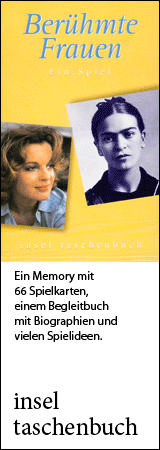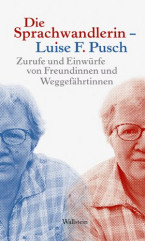
American poet
born November 9, 1928 in Newton, Massachusetts
died October 4, 1974 in Weston, Massachusetts
Biography • Literature & Sources
Biography
A child of the same generation as Sylvia Plath, Ingeborg Bachmann, Marlen Haushofer and Caroline Muhr, Anne Sexton wrote confessional poetry of an entirely new honesty and precision, exploring intimate themes of family, love, loss, guilt, death and madness, which she hoped would have the “authentic stamp” to serve, as she quoted Kafka,” as the axe for the frozen sea within us.”
Anne Sexton's mother had attended Wellesley College and was, as Sexton maintained, her sternest critic, having discouraged Anne's earliest poetic efforts in high school by a disparaging comment. Her father was a succesful businessman. Anne briefly attended college in Boston before eloping at age nineteen with Alfred “Kayo” Muller Sexton II, the son of a wealthy family. Settled in the suburbs near Boston, Sexton had two daughters, and saw herself as a “victim of the American Dream, the bourgeois, middle-class dream,” wanting only “to be married, to have children,” and “trying [her] damnedest to live a conventional life.” But the “nightmares, the visions, the demons” which plagued her did not disappear, and from 1954 on she suffered frequent breakdowns, was continuously under the care of a psychiatrist and was hospitalized for mental illness several times. After her first suicide attempt in 1956 her psychiatrist encouraged her to write poetry, and her experiences in the mental hospital gave rise to the poems that would eventually make up her first volume of poetry, To Bedlam and Part Way Back (1960).
Sexton was quickly recognized as an original, important poet, and was soon teaching her craft (Harvard and elsewhere) and reading widely in the US and England. Her second volume, All My Pretty Ones (1962), deals with loss, particularly the deaths of her parents, and was nominated for a National Book Award. In her Pulitzer Prize-winning Live or Die (1966), Sexton wrestles with the longing for death that she shared with her friend Sylvia Plath, but her next book, Love Poems (1969), reflects the commitment to live with which she ended the previous volume. In 1971 Sexton published Transformations, brilliant, satiric re-visions of selected Grimms' fairy tales, which lay bare their subconscious or socially relevant content. Sexton enjoyed a long and supportive friendship with the poet Maxine Kumin; while their children were still small the two women would “workshop” their poems over the telephone.
Sexton's later poetry, often preoccupied with death and the longing for belief, lacks the discipline and care which marked her early work (she revised one early poem 300 times), and reflects her increasing desperation. Sexton divorced her husband in 1973, and the following year succeeded in committing suicide.
Author: Joey Horsley
Literature & Sources
Barnard Hall, Carolyn King. 1989. Anne Sexton. Boston. Twayne.
Cowart, David. 1980. “Anne Sexton”, in: Dictionary of Literary Biography, Vol 5, American Poets Since World War II, Part 2, Ed. Donald Griener, S. 225-32. Detroit, Mich. Gale Research Company.
Furst, Arthur. 2000. Anne Sexton: The Last Summer. Introduction by Linda Gray Sexton. New York. St. Martin's Press.
George, Diana Hume. 1987. Oedipus Anne: The Poetry of Anne Sexton. Chicago. Univ. of Illinois Press.
George, Diana Hume. Ed. 1988. Sexton: Selected Criticism. Urbana, IL. Univ. of Illinois Press.
McClatchy, J.D. Ed. 1978. Anne Sexton: The Poet and Her Critics. Bloomington, IN. Indiana University Press.
Middlebrook, Diane Wood. 1991. Anne Sexton: A Biography. London. Virago.
Sexton, Anne. 1977. Anne Sexton: A Self-Portrait in Letters. Ed. Linda Gray & and Lois Ames. Boston. Houghton Mifflin.
Sexton, Anne. 1985. No Evil Star: Selected Essays, Interviews, and Prose. Ed. Steven E. Colburn. Ann Arbor. Univ. of Michigan Press.
Sexton, Anne. 1988. Telling the Tale. Ed. Steven E. Colburn. Ann Arbor, MI. Univ. of Michigan Press.
Sexton, Linda Gray. 1994. Searching for Mercy Street: My Journey Back to My Mother, Anne Sexton. Boston. Little, Brown.
If you hold the rights to one or more of the images on this page and object to its/their appearance here, please contact Fembio.



